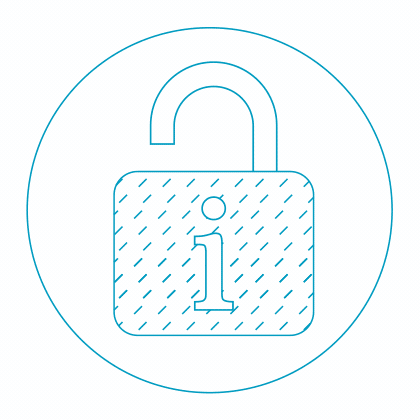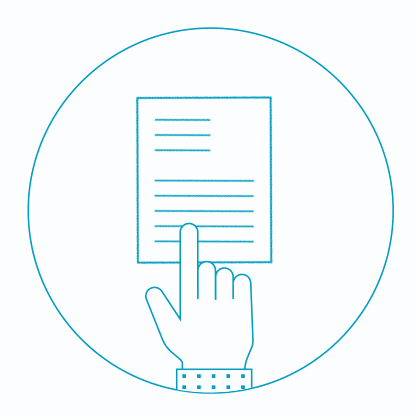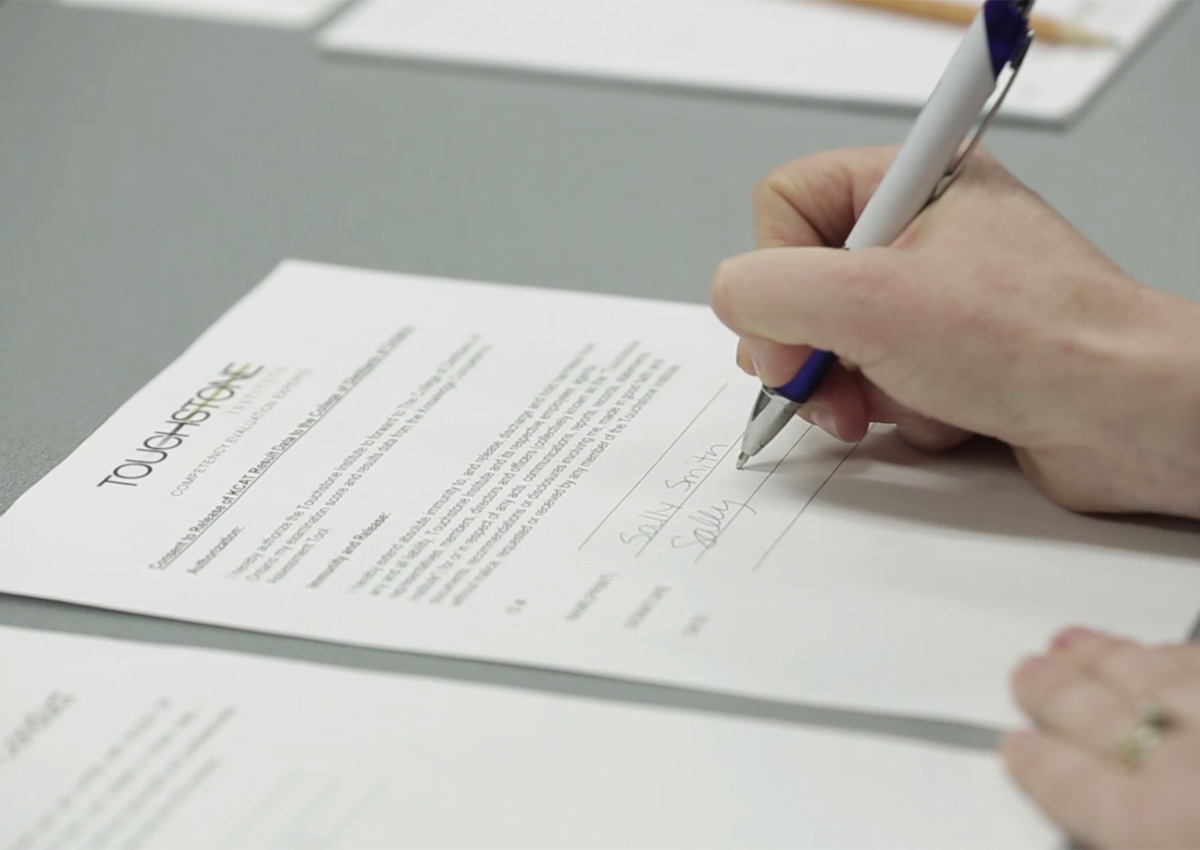ABOUT US
Ethical Exam Behaviour and Consequences for Unethical Behaviour
Please note: Touchstone Institute exam policies do not necessarily apply to assessments conducted on behalf of other organizations.
Overview
Below is information for all examinees to review to remind themselves of how to behave ethically, and what type of behaviour is prohibited with reference to assessments administered by Touchstone Institute. Each examinee participating in an assessment will be asked to sign an exam conduct agreement that covers the below information.

Index
Main Purpose
Touchstone Institute has a responsibility to maintain the security and integrity of its exams. In order to maintain public confidence in professional competence, the assessments that test their skills and knowledge need to be kept secure and reliable. Touchstone Institute Assessment programs include confidential examination content, protected by the Canadian and International Copyright Act. Any examinee who is found to be cheating or acting unethically may face disciplinary and/or legal consequences.

Cheating
What is Cheating and Why is it a Problem?
Cheating is any deliberate action or behaviour that gives an individual, or a group, an unfair advantage over others taking the same exam. Cheating occurs when an unfair advantage is given to an examinee, when an examinee is put in a difficult ethical situation, and/or when an unqualified individual is assisted to pass the exam. Any examinee who cheats on an exam has not fully demonstrated that they have the required knowledge and skills. They put themselves, their patients, their colleagues, and their employers at risk in their professional practice. Those who help others to cheat may be permitting unqualified examinees on their path to seeking registration/certification.
Prohibited Conduct
Prohibited Conduct
Examinees should not:
- Disclose, discuss, or share exam content and exam questions with anyone verbally, in writing, or through any other method of communication including on the internet, through email accounts, or through social media;
- Bring any prohibited items, materials or devices into the physical or virtual exam room;
- Attempt to remove any items or exam materials from the physical exam room;
- Copy, memorize, record, or otherwise attempt to retain or recreate examination content including texts, questions, concepts, topics, graphics, images, scripts, scoring rubric, and any other props;
- Assist anyone to copy, memorize, record, otherwise retain, recreate, or reconstruct the content for any purpose;
- Share or sell exam questions or exam content;
- Share or sell answers to exam questions;
- Study from information derived from any item listed above;
- Participate in any training program derived from any item listed above;
- Organize and/or administer training program(s) derived from any item listed above
Unethical Behaviour
Other Unethical Behaviour
Examines are expected to behave in a manner that does not disrupt the delivery of the exam in any way, before, during, or after the exam, both online or in person. This includes, but is not limited to: challenging administration directives, questioning exam policies and procedures, making disruptive comments about the exam, talking to other examinees during the exam or other behaviour that in the opinion of Touchstone Institute or its designates is disruptive or discourteous to others. Examinees may be asked to respond to questions, provide information or documents, or otherwise participate in an investigation of an exam security matter. Examinees should understand that failure to fully cooperate in an investigation may be considered unethical behaviour.
Consequences
Consequences of Unethical Behaviour and Prohibited Conduct
Touchstone Institute has the right to take action against examinees who participate in any prohibited conduct or unethical behaviour.
Actions taken against examinees behaving in an unethical manner may include:
- Designated exam administrator may immediately dismiss the examinee from the exam session;
- Examinee’s exam may not be scored and the regulatory authority may be informed of the reason;
- Exam scores may be cancelled, without a refund, and the regulatory authority may be informed of the reason for the cancellation;
- Examinees may be temporarily suspended or permanently banned from taking the exam;
- Examinees could face a lawsuit that may result in them receiving court enforced penalties;
- Touchstone Institute may report actions to the relevant regulatory authority

Agreement
Exam Conduct Agreement
Prior to starting their assessment, all examinees will be asked to sign an exam conduct agreement. A sample exam conduct agreement can be found below. Agreements may vary depending on the exam.
